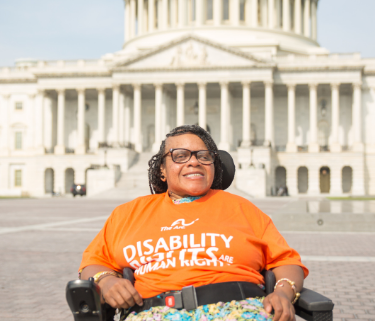Lawsuit Filed Challenging New Texas Law Targeting Voting Rights
Editor’s Note: You can find the latest news on this lawsuit in this case page. If you need assistance to vote, visit www.fvap.gov.
Today, the NAACP Legal Defense and Education Fund, Inc. (LDF), Reed Smith LLP, and The Arc filed a federal lawsuit on behalf of the Houston Area Urban League, Houston Justice, Delta Sigma Theta Sorority, Incorporated, and The Arc of Texas challenging S.B. 1, a new Texas law targeting voting rights. S.B. 1 includes a series of suppressive voting-related provisions that will make it much harder for Texas residents to vote and disenfranchise some altogether, particularly Black and Latino voters and voters with disabilities.
The lawsuit, which was filed in the United States District Court for the Western District of Texas, argues that S.B. 1 violates the First, Fourteenth, and Fifteenth Amendments of the United States Constitution and Section 2 of the Voting Rights Act by intentionally targeting and burdening methods and means of voting used by voters of color.
The Plaintiffs also claim that the law violates the Americans with Disabilities Act and Section 504 of the Rehabilitation Act of 1973 and Section 208 of the Voting Rights Act by imposing voting barriers that will discriminate against voters with disabilities and deny people with disabilities full and equal opportunities to participate in the state’s voting programs.
The lawsuit challenges multiple provisions in SB 1, including:
- Limitations on early voting hours and a ban on 24-hour voting.
- The elimination of drive-thru voting centers.
- The prohibition of mail-in ballot drop-boxes.
- Limitations on the distribution of mail-in ballot applications.
- Limitations and possible penalties for voter assistants, including criminal felonies.
Read the lawsuit challenging S.B. 1.
“Despite Texas legislators’ repeated and disingenuous attempts to cite ‘voter fraud’ as their reasoning for implementing S.B. 1, it is clear as day that this law was created to suppress votes,” said LDF Assistant Counsel Georgina Yeomans. “Rather than expand voting access, elected officials are making it harder for Texans to vote – especially voters of color, who will be disproportionately burdened. S.B. 1 was intentionally designed to have that effect.”
“Democracy should make it easier for eligible voters to vote, not harder,” said Ken Broughton, managing partner of Reed Smith’s Houston office. “Democracy should also increase voter turnout, not inhibit it. This legislation will prevent many qualified voters from voting because these laws are anti-voter.”
“Voter suppression is a disability rights issue. People with disabilities have the fundamental right to vote and participate in our democracy, but this right has too often been denied. S.B. 1 disenfranchises voters with disabilities and denies them equal access to voting in violation of federal disability rights laws,” said Shira Wakschlag, Senior Director, Legal Advocacy & General Counsel at The Arc.
“The Houston Area Urban League has a long history of supporting the disenfranchised. Any law that makes it harder for them to have their voices heard under the cloak of rampant voter fraud is disingenuous and contrary to our democracy,” said Houston Area Urban League President and CEO Judson Robinson III.
“The law at its core is anti-democratic and clearly designed to suppress the vote,” said Tina Kingshill, Coordinating Director of Houston Justice. “It will further hinder voting rights of low-income, pre-trial defendants of color unable to post bail who comprise over 70% of local and county jail populations. By prohibiting the expenditure of public funds to facilitate third-party distribution of applications to vote by mail, the law burdens non-profit voter outreach organizations with funding the printing costs of the applications. Many organizations will not have the funds for printing, so essentially the right to request and cast a ballot while incarcerated is taken away.”
“Delta Sigma Theta Sorority, Incorporated has been fighting for the rights of all U.S. citizens to vote for 108 years. It is our honor and responsibility to continue the fight against oppressive voting laws started by our Founders,” said Delta Sigma Theta President and CEO Beverly E. Smith. “S.B. 1 directly threatens the right to vote of over 20,000 members of Delta Sigma Theta Sorority and their family and friends in Texas, and we are committed to fight against S.B. 1 on their behalf.”
“Texas voters with disabilities are proud to participate in the democratic process and deserve equitable access to the polls, not more barriers,” said The Arc of Texas CEO Jennifer Martinez. “Unfortunately, these same Texans are accustomed to fighting for their civil rights and must continue to do so against the latest voter-suppression measures passed by the Texas Legislature.”
Texas is among more than 40 other states that have enacted legislative efforts to substantially restrict voting access. LDF and The Arc are also involved in litigation challenging Georgia’s restrictive voting law that also discriminates against voters of color and voters with disabilities. Read more here.

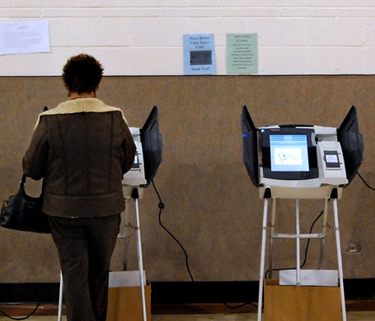


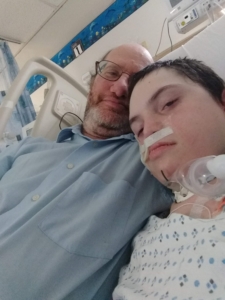
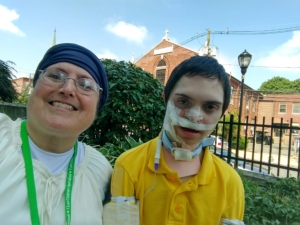


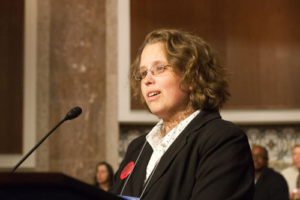 I live in Silver Spring, Maryland. I am on the autism spectrum and have anxiety, ADD, seizures, and a learning disability. I am writing to talk about the importance of helping people with disabilities get their student loans discharged, including ending the 3 year monitoring period. As the Biden Administration works to address student loan debt for people with disabilities, it is critically important that the application process be easier and we eliminate the 3 year monitoring period for work earnings. Student loans create a major financial hardship on people like me and many others with disabilities, especially those who live on their own in expensive areas. The amount of loans that I had discharged was around $1,177 which is just slightly less than what I pay in monthly rent for my studio apartment. No one with a disability should have to choose between paying for rent or basic needs and student loans. Many of us in the disability community struggle with finding jobs that pay livable wages where we make enough to live comfortably off public benefits. Benefit cliffs often force us to make big trade-offs between working and needing to stay eligible for public benefits. Some people with disabilities have their Social Security benefits cut to pay their student loans and that isn’t fair.
I live in Silver Spring, Maryland. I am on the autism spectrum and have anxiety, ADD, seizures, and a learning disability. I am writing to talk about the importance of helping people with disabilities get their student loans discharged, including ending the 3 year monitoring period. As the Biden Administration works to address student loan debt for people with disabilities, it is critically important that the application process be easier and we eliminate the 3 year monitoring period for work earnings. Student loans create a major financial hardship on people like me and many others with disabilities, especially those who live on their own in expensive areas. The amount of loans that I had discharged was around $1,177 which is just slightly less than what I pay in monthly rent for my studio apartment. No one with a disability should have to choose between paying for rent or basic needs and student loans. Many of us in the disability community struggle with finding jobs that pay livable wages where we make enough to live comfortably off public benefits. Benefit cliffs often force us to make big trade-offs between working and needing to stay eligible for public benefits. Some people with disabilities have their Social Security benefits cut to pay their student loans and that isn’t fair.



